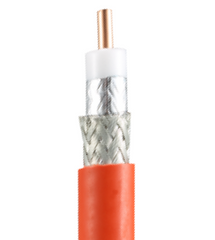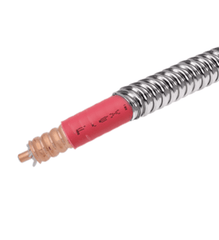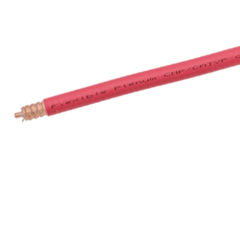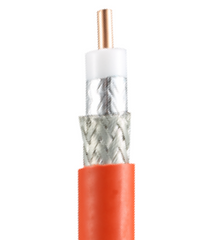SureCall Sentry Remote Control System 4G for Fusion5s Only
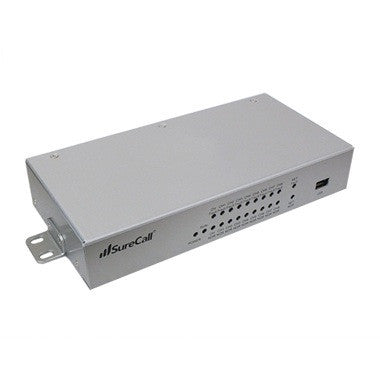
SureCall Sentry Remote Control System 4G for Fusion5s Only
Buy Now, Pay Later with No Interest if paid in full within 6-12 months. Choose Klarna payment option at the checkout for details of this, and other long-term low-interest financing options.
Free Lifetime Support. SKU / Model: SC-SentryC
1(855)846-2654
Need installation quote, or help with designing a custom solution? Submit a request for quote.
- Description
- Reviews
- Questions & Answers
- Data Sheet / User Guide
- Make An Offer
- Warning
Description
Product Description
SureCall Sentry remote cell phone signal booster monitoring and control system is for Sure Call Fusion5 cell phone signal booster kits. It is a revolutionary advancement in cellular amplifier installation, maintenance, optimization and ongoing booster system management. After purchase of this hardware, its software is free to download from SureCall web site. It is essential for custom installers because it provides fast and seamless installations.
- It remotely monitors and adjusts performance for a Fusion5s boosters from a computer.
- It helps optimize installations by monitoring and identifying the strongest signal strength available and adjusting accordingly.
- It quickly pinpoints malfunctions due to unforeseen changes such as newly installed cellular towers or repeater systems in vicinity.
- It immediately notifies installers or end-users via email about cell booster failures or over powering that may occur.
- Enables remote adjustment and control of each link or band.
The purchase of SureCall Sentry Remote Monitoring and Control System for Fusion5s includes hardware, AC power supply, and ribbon cable. SureCall Sentry Annual User Monitoring License will be required in the near future, so buy today. UPC: 729198465193.
General instructions on how to set up the Sentry Remote Monitoring System.
Video provided details the following. Learn a little more about SureCall’s remote monitoring system - the Sentry, and how to set it up. When you open the box the Sentry comes in, you will find the Sentry remote monitoring system, a ribbon cable, an AC power adapter with barrel connector, a USB cable and a user manual.
This slide presentation will include: an installation overview, instructions on registering the Sentry, the process of adding a booster, an overview of how to use the included antenna placement tool and instructions on how to digitally configure the gain settings through the Sentry dashboard.
The first step in installing the Sentry device is to connect the ribbon cable from the Sentry’s RF data port to the Booster’s GUI port.
Step 2.
Connect the USB cable from the Sentry’s USB port to the USB port on the computer you are going to register and monitor the booster with.
Step 3.
Connect the LAN or local area network cable to the Sentry’s LAN port and the other end to your router. Connect the AC power adapter to the Sentry’s power port and the other end to an electrical outlet. You may now turn the Sentry unit on.
Download and save the century software to your desktop from the SureCall website.
Keep in mind the Sentry software only works for PCs. Run the setup file to install the software.
In order to register and use the Sentry unit and software, first open the Sentry application and then click on the Register button.
Next, click on the User Registration button. Fill in the user registration page completely. Here you can choose your username, create a password, enter the email you wish the alert notifications to come to and the primary user’s phone number.
Click Register and login to the Sentry application using your new name and password.
Now you're ready to sync the Sentry unit with the Sentry software so that you can adjust and monitor your SureCall cellular signal booster.
Login to the Sentry Dashboard and click the Add Booster button at the top left of the column. Click on the drop-down box for the correct COM port and click the Open button.
Now click the Refresh button and the rest of the IP information should populate automatically. The server port number will always be 5210. If for some reason, you do not see the dashboard after adding a booster, you may have an incorrect COM port selected. Your ports can typically be found in your Device Manager. Please make sure that the COM port number matches the one displayed under the USB serial port.
The Sentry IP server address can be found here. Once the information for the IP address and the server port number matches what is on this screen, click Apply.
Now you have the opportunity to create a name for the booster this century is synced with. If you are planning on using multiple boosters, consider giving each booster a unique easy to remember name. This will make monitoring and troubleshooting later much easier. Once you have created a name and enter the address where the booster and the Sentry are located, click Add.
You should now see the booster you just registered on the Sentry dashboard. To access the booster information through the Sentry unit, simply click on the booster you wish to view and click Refresh. You can now unplug the USB from the PC.
The Sentry is not only a monitoring tool, it is also an installation tool. We will now take a look at the antenna placement tool included in the Sentry software.
Using this tool can help you find the best place to mount the external donor antenna. On the Sentry application dashboard, right-click on the registered booster, click Antenna Position Debug.
Once the outside antenna is connected to the booster, click the Measure button. The Sentry will measure and log the incoming signal strength on each RF band. You will also see what time of the day this reading was taken.
The antenna placement tool can log as many as five different outside antenna positions. Once you have logged five potential donor antenna locations, click the Compare button.
The antenna placement tool will then highlight the position that had the best incoming signal across all five bands.
We will now take a look at the gain configuration properties of the Sentry remote monitoring system. The Sentry allows you to monitor the booster remotely and make changes to the booster’s gain digitally. It can aid in adjusting the booster to help eliminate the warning lights. It will also email the registered user if a warning light is activated. This email will let you know what light indicator has been activated such as oscillation in the system an overpowering incoming signal or over attenuation resulting in the band shutting off.
On the Sentry dashboard, the red light means the incoming signal is too strong. You can digitally adjust the downlink in 5dB increments until the problem is resolved. Remember to click Apply and then Refresh after each adjustment.
If there's a yellow flashing light, that means the band is automatically adjusting itself. This is a normal booster function called Automatic Gain Control and should not be a reason to be concerned. The yellow solid means that the band is in sleep mode. This means it is not detecting any uplink and has turned off until it detects an uplink signal. This is a normal booster function as well and should not be a reason to be concerned.
Yellow and red flashing means there is not enough separation between the outdoor and the closest indoor antenna. This is causing a feedback loop called Oscillation in the system and should be fixed before leaving the facility that the booster is installed in. This alert will cause an email to be sent out to the registered user alerting them to the problem.
One way to fix this problem is to move the outside antenna further away from the closest indoor antenna. You can also attenuate the booster but this will result in a smaller area of signal coverage coming out of each of the internal or broadcast antennas.
If you wish to reset the booster back to its full gain, simply access the booster submenu by right-clicking on the correct booster and choose Restore Default Settings. All digital attenuation will return to 0 but manual attenuation will remain unchanged.
As always, the SureCall team is here to help in any way possible. If your questions have not been answered through this presentation, feel free to contact our US-based technical support team.
Reviews
Questions & Answers
Data Sheet / User Guide
Make An Offer
Warning
Related Products







